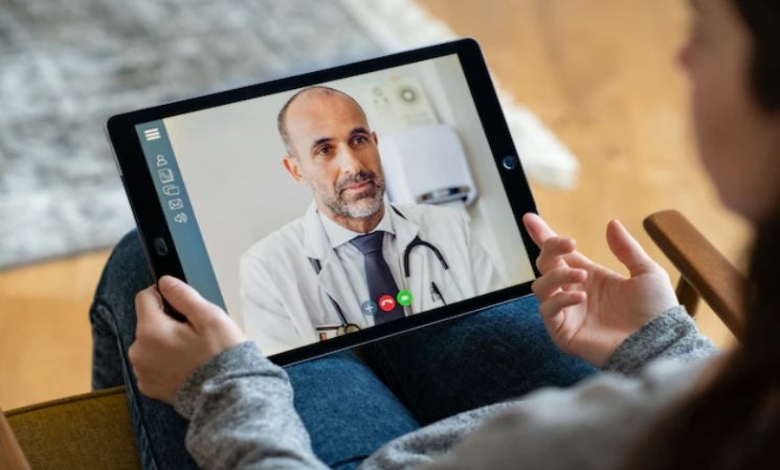How do Electronic Health Record Benefit Patients and Healthcare
Electronic Health Record Benefit Patients and Healthcare

In today’s world, the healthcare system can be capable of sorting through massive amounts of data and identifying the tidbits that are relevant to a specific patients condition. However, there are still issues with determining which data is important and determining the best treatment and prevention strategy for each patient. Electronic health record softwares allow health organizations to keep more detailed, consolidated, and accessible medical records.
Despite the advantages of electronic health records, which include new functionality, there are still issues with this type of digital record keeping. Employees may be unsure of how to use EHRs effectively or integrate them into their existing systems and processes.
Health professionals can be aware of the advantages and disadvantages of electronic health record systems, as well as how to properly implement them in the healthcare industry.
What Do Electronic Health Records Mean?
An electronic health record is a stored electronic representation of a patient’s medical history that may include all critical clinical data pertinent to that patient’s care. An EHR may contain information such as a patient’s medication history, medical treatment records, and data about examinations and tests that the patient has had. Furthermore, a medi emr provides physicians and care providers with tools to help them make treatment decisions for their patients.
What Are Some of the Patient Benefits of Electronic Health Records?
EHRs electronic health records are available in a variety of formats. To keep track of patient records, a hospital may have installed specialized software and created its own internal database. To make records accessible from a variety of devices, a clinic can use the services of a cloud provider. A record can be a physician’s and administrators look at on a PC before treating a patients.
EHRs contain information from all of the physicians involved in a patient’s care, and all authorized healthcare specialists involved in that care may access the information to treat the patient. PHRs are similar to medical records in that they are set up, accessed, and managed by patients.
Convenience
After recently relocating to a new city, a person seeks specialist therapy. When the patient makes an appointment request, the administrator requests documents and information from the organizations where the patient has previously received therapy. As a result, the patient must make multiple phone calls and email requests to reach administrators. EHRs have the advantage of providing a centralized system that allows multiple health organizations to share up-to-date information about a patient, making it easier for patients to access and receive care. EHRs facilitate information sharing in situations where a patient needs to obtain information about a previously prescribed medication.
Affordability
Telehealth advancements have already enabled people to obtain a broader range of services at a lower cost and in a more convenient manner. Instead of traveling long distances to see specialists or fill prescriptions, patients can often consult with a clinician via video conferencing or a mobile app. Healthcare technology will continue to advance, and electronic health records (EHRs) will become more useful, allowing opportunities to make health care more affordable for patients.
Improved Care Quality
If a hospital or health organization lacks an EHR system, physicians may be unaware that a medication they prescribed conflicts with another prescription the patient is receiving. When a new medication is prescribed, a competent EHR not only keeps track of the patient’s medications and allergies, but also looks for issues and alerts by the physicians to potential conflicts.
The fact that the data exists and is organized more thoroughly can help identify health issues and improve the quality of care that patients receive.

Improved Services in Rural Areas
Some people live in outlying areas hundreds of kilometers from the nearest clinic. EHRs can assist such patients in rural areas by providing a complete picture of their medical history, determining whether they require professional assistance, and making care more affordable. A remote patient who has already received some immunizations can access their EHR to obtain that information and avoid receiving or having to pay for unnecessary services.
What Are the Advantages of Electronic Health Records for Medical Professionals?
Enhanced Efficiency
Medical practitioners can quickly send patient data to other departments or providers, reducing errors and leading to better results management. Both patients and doctors frequently opt these process improvements, as they can assist in keeping a facility’s schedule on track. Medical error reduction benefits both the physician and the patients.
An EHR system eliminates the issue of misplaced or lost patient files, as well as data inaccuracies that may occur during transcription.
Because they provide centralized chart management and faster access to patient information, EHRs can be more efficient than paper records. Communication with other doctors, insurance providers, pharmacies, and diagnostic centers is more efficient and trackable. There will be less paperwork and fewer storage issues. Administrative operations in the healthcare industry consume a significant amount of time and money.
Clinicians and administrators may devote considerable time filling out and processing forms. Because EHRs are paperless, they automate routine procedures, and as the volume of papers decreases, so does the amount of storage space required. Healthcare specialists’ offices may become less cluttered as storage demands decrease and efficiency increases. Office management is simplified by integrating scheduling, which that is linked to progress notes, automated coding, and insurance claims. All of these EHR features contribute to time savings, which leads to increased productivity.
Improved Care Quality
EHRs enable real-time sharing of patients’ health information. From better diagnoses to fewer errors, comprehensive information leads to a higher level of care. By providing automatic reminders for preventative appointments and screenings, EHRs can also help patients better manage their diseases and participate more actively in their health care. Paper prescriptions for pharmaceuticals may be misplaced or misinterpreted, resulting in dosage issues or even the prescription of the incorrect medication. Through electronic prescribing, health professionals can communicate directly with pharmacies, reducing errors and saving time by eliminating missed prescriptions. Electronic prescribing also improves patient safety by checking for potentially dangerous drug combinations automatically.
Revenue Growth
Electronic records, when used correctly, can save physicians time during patient visits and allow them to see more patients during the workday. These minor adjustments may only save a few minutes per visit, but over the course of a working day, that time adds up and allows physicians to see more patients. Many physician practices receive requests for patient charts as part of the claims review process. The time and effort required to generate these charts may be a drain on resources, but an EHR can help to speed up the process. Furthermore, the result would be a more accurate and comprehensive chart delivered quickly, with physicians having more time to see patients. When using paper charts, many physicians use a lower billing code rather than the appropriate level of code to be on the safe side of the law.
Wrap up
EHR offers numerous advantages to both patients and healthcare organizations. Healthcare practitioners can increase their earnings and provide better care if they do not spend time on time-consuming activities such as documentation or billing. Before deciding on one, you must first understand the functions and tools that your practice requires. Don’t be afraid if you don’t understand something or are unsure about something. Many reputable custom hospital software development company experts can help you determine exactly what your challenges are and provide advice on how to create an EHR system.


